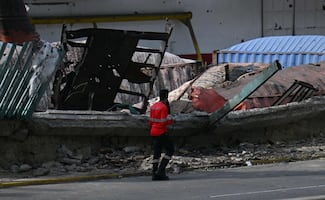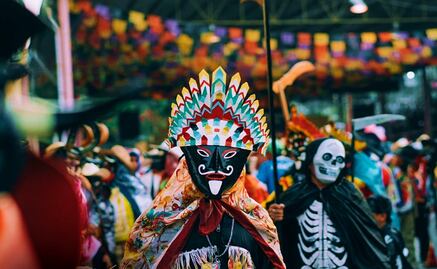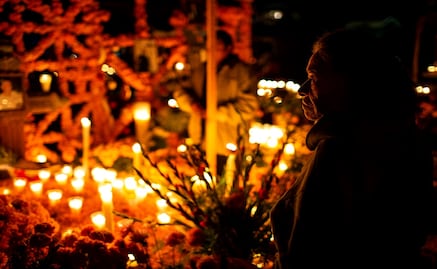Más Información

Cae en Nayarit operador financiero de "El Mencho"; detienen también a jefe de plaza del CJNG de Tlajomulco

Ricardo Salinas mantiene su pulso con el gobierno de México; denuncia en la OEA persecución política
In a few days, Mexico will celebrate one of its most important celebrations: the Day of the Dead (Día de Muertos)!
On November 1 and 2 , Mexicans set up altars, dress up as skeletons, and host parties and this year won't be the exception.
Day of the Dead
is highly popular among locals and tourists, who join a series of events to celebrate this Mexican tradition with makeup, costumes, food, and music.
Each region has different ways to celebrate Day of the Dead: from the most traditional to the most modern, but without losing the essence of this heritage .
The mysterious bone cleaning ritual in Pomuch
Within the framework of Mexico’s Day of the Dead , Campeche stands out from other entities with its traditional and mysterious bones cleaning in the Pomuch cemetery that offers a unique experience.
In the country, on November 1 and 2 , each region has a different way to celebrate this emblematic date in Mexican culture . In the case of the town of Pomuch , the tradition highlights its Mayan roots.

In this community, when a person dies, they are buried for three years and are later unearthed on All Saints’ Day ; the bones are then put in a wooden box inside a niche to be cleaned by its relatives year after year.
The Huasteca Potosina celebrates Xantolo. There are 20 municipalities with their own traditions that include dances, vigils, and altars with a common purpose: “to venerate the departed and remember them,” says Alfredo Ortega, project coordinator of San Luis Potosí’s Tourism Culture.
Xantolo is celebrated in San Luis Potosí, Veracruz, Hidalgo, and Tamaulipas . The word comes from the Latin “sanctorum” or “saint” that refers to those who passed away.
Two elements are present in all the communities: altars and huehues or ancestors dances. Since October 31 , altars are installed in cemeteries and houses. In the top part, they put a palm arch with cempasúchil flowers to represent heaven’s gates.
Kuirisi-atakua
, also known as duck hunt, is an activity from Michoacán that starts on October 31 and concludes on November 2 with the celebration of Day of the Dead.
This tradition used to be held with several neighboring towns but nowadays it only takes place in regions like the Janitzio island , located in Pátzcuaro lake .
This ceremony, differently from others in the country, takes place on October 31 : communities organize themselves to go out at a set time to begin the duck hunt .
Hunters use tools such as spears or firearms that help them pursue their mission that, besides being a Day of the Dead celebration, is also a sport .
Noticias según tus intereses
[Publicidad]
[Publicidad]















